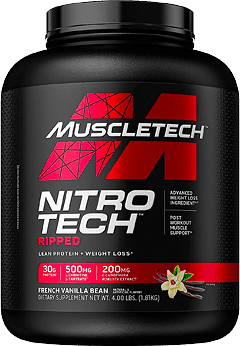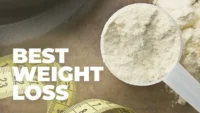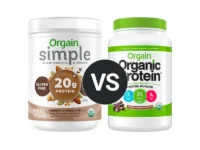Knowledge BaseYou're Questions Answered
Does protein really burn fat?
Protein plays a significant role in weight management and fat loss, but it's important to understand how it influences these processes rather than directly "burning" fat.
1. The Role of Protein in Fat Loss
Protein is essential for several physiological processes that support fat loss:
- Increased Satiety: Protein has a high satiety level, meaning it helps you feel full for longer. This can lead to a reduction in overall calorie intake, which is a critical factor in fat loss. By keeping hunger at bay, protein-rich foods or supplements can prevent overeating and reduce snacking, thereby contributing to a calorie deficit1.
- Thermic Effect of Food (TEF): The thermic effect of food refers to the amount of energy (calories) the body uses to digest, absorb, and process nutrients. Protein has a higher thermic effect compared to carbohydrates and fats, meaning your body burns more calories processing protein. This can slightly increase your overall calorie expenditure, aiding in fat loss2.
- Preservation of Lean Muscle Mass: During weight loss, it’s common to lose muscle mass along with fat. However, a diet high in protein can help preserve lean muscle tissue. Maintaining muscle mass is crucial because muscles burn more calories than fat, even at rest, thereby helping to increase your basal metabolic rate (BMR) and promote fat loss3.
2. Protein and Fat Oxidation
While protein itself doesn’t directly "burn" fat, it supports fat oxidation processes in the body:
- Insulin Regulation: Protein can help regulate insulin levels, particularly when consumed in place of high-carbohydrate foods. Lower insulin levels can promote the use of fat as an energy source, facilitating fat oxidation4.
- Increased Energy Expenditure: Higher protein intake can increase energy expenditure through increased thermogenesis and muscle protein synthesis, which indirectly supports fat burning5.
3. Practical Application
To effectively use protein for fat loss, it’s essential to combine it with a balanced diet and regular exercise:
- Dietary Protein Sources: Include lean protein sources like chicken, fish, eggs, and plant-based proteins in your diet. Consider protein supplements if you struggle to meet your protein needs through food alone.
- Balanced Caloric Intake: While protein supports fat loss, it’s still crucial to maintain a calorie deficit (consuming fewer calories than you burn) to lose weight.
- Strength Training: Engage in resistance training to build and maintain muscle mass, which will enhance your metabolism and support fat loss.
In conclusion, while protein doesn’t directly burn fat, it plays a crucial role in supporting fat loss through increased satiety, thermogenesis, and muscle preservation. Incorporating sufficient protein into your diet, along with a balanced exercise routine, can significantly enhance your fat loss efforts.
- Weigle, D. S., et al. (2005). A high-protein diet induces sustained reductions in appetite, ad libitum caloric intake, and body weight despite compensatory changes in diurnal plasma leptin and ghrelin concentrations. The American Journal of Clinical Nutrition, 82(1), 41-48.
- Westerterp-Plantenga, M. S., et al. (2009). Dietary protein, metabolism, and body-weight regulation: dose–response effects. International Journal of Obesity, 33(1), 29-38.
- Paddon-Jones, D., et al. (2008). Protein, weight management, and satiety. The American Journal of Clinical Nutrition, 87(5), 1558S-1561S.
- Layman, D. K., et al. (2005). Protein in optimal health: heart disease and type 2 diabetes. The American Journal of Clinical Nutrition, 81(5), 1137S-1145S.
- Hector, A. J., & Phillips, S. M. (2018). Protein recommendations for weight loss in elite athletes: a focus on body composition and performance. International Journal of Sport Nutrition and Exercise Metabolism, 28(2), 170-177.
Related Questions
Related Reviews

Your Answer
We are a participant in the Amazon Services LLC Associates Program, an affiliate advertising program designed to provide a means for us to earn fees by linking to Amazon.com and affiliated sites.



